Boosting Women Economic Empowerment Through A Simple Tree Regeneration Technique In Rural Kenya
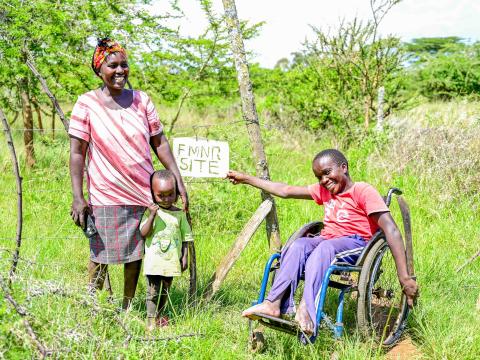
Idleness is a thing of the past for one 36-year-old farmer, Sally Chebii who comes from Lengenet in Nakuru County, Kenya. When her four children—Brian, George, Shirleen, and Kiprono—are not in school, she spends a lot of time with them on the farm while her husband, Ben, is at work in the city.
Sally is a Lead Farmer who has set aside 2 acres of her land to practice Farmer Managed Natural Regeneration (FMNR), a simple tree regeneration approach that she says has offered her financial freedom among other benefits.
“Before, I was completely dependent on my husband, eagerly waiting for his pay day in order to get money for food, children’s school fees and other necessities. At times it stressed me out and brought conflict between us,” says Sally.
With a beam of satisfaction she adds,” I am no longer stressed and I am proud of myself. I can sell hens, eggs, vegetables or milk if I need some money. I can easily provide basic necessities for the children without having to call their dad who is miles away. We now boost each other financially.”
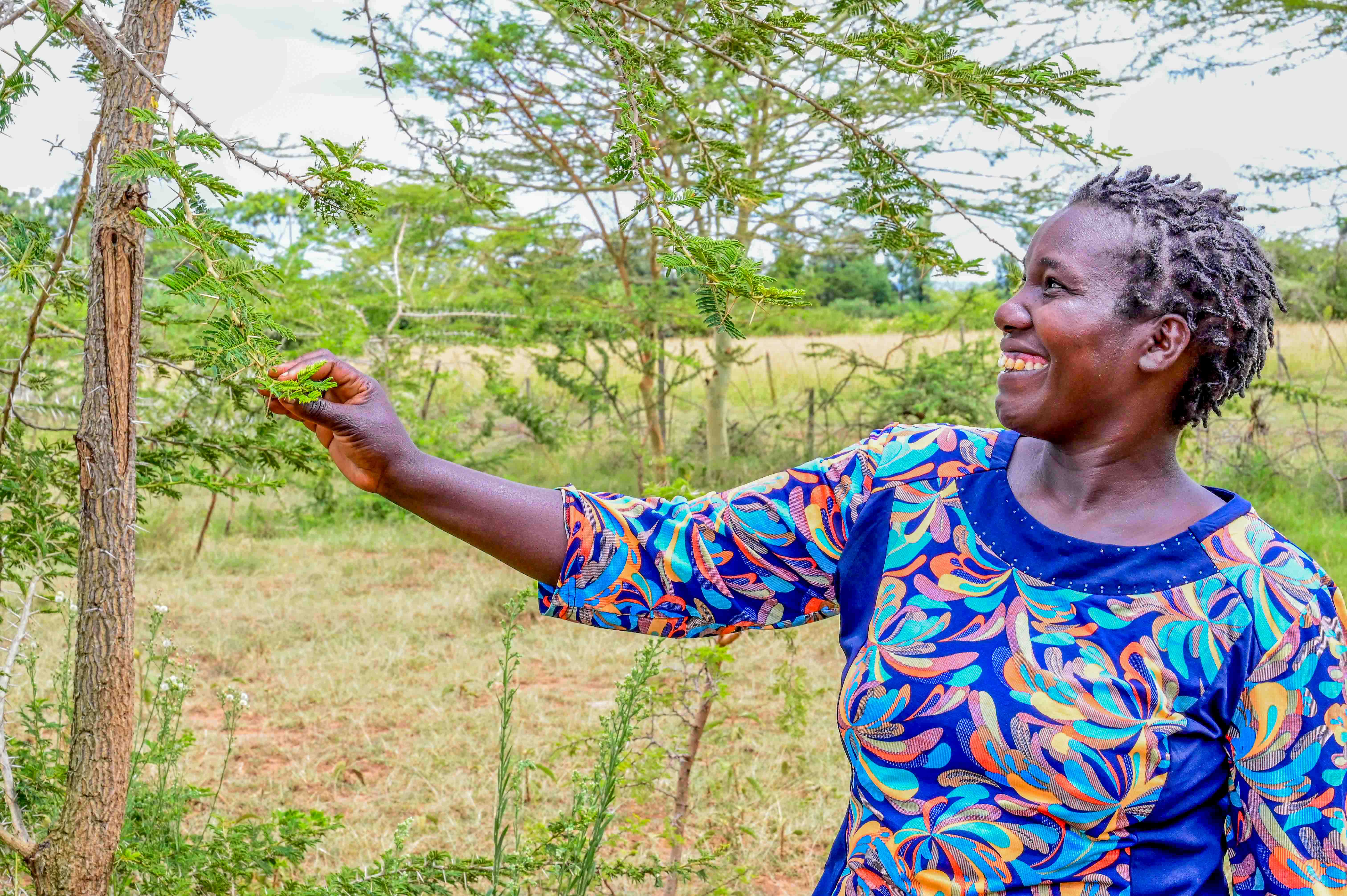
Sally was among 1,000 smallholder farmers and pastoralist trained on FMNR and other restoration techniques by World Vision through the Central Rift Farmer Managed Natural Regeneration Scale-Up Project (CRIFSUP) in 2022. Funded by the Australian Government through the Australian NGO Cooperation (ANCP), the project aims to strengthen food security and livelihood resilience for communities in Baringo, Elgeyo Marakwet, Nakuru and West Pokot Counties in Kenya.
Immediately after the training, Sally went home and enclosed 1-acre of land, where she thinned and pruned the once-impassible thorny thicket. On seeing how neat and smart the farm turned out to be, she felt motivated and before the year ended, added one more acre to practice FMNR. In addition to training her family, Sally has also trained 11 community members who are actively practicing FMNR. Sally says her husband fully supports the work she does on the farm as this has lessened the economic burden. They have increased their household income and incur less expenses due to the farm produce.
Learning about FMNR reignited Sally’s passion for farming and keeps her occupied as she spends most of her time pruning or tending to her crops and livestock in the farm.
“The environment has become so beautiful. The fresh air in the FMNR farmland makes you feel relaxed. Even grass that was not on the land before started growing. I now get firewood, fencing material, herbal medicine and pasture for my livestock all-year-round,” Sally claims.
Due to the severe drought that Kenya experienced in 2019, Sally was forced to sell three of her cows for the pitiful sum of 500 KES (3.83 USD) each. The cows were emaciated and would not have lived to see the next rainy season due to lack of pasture and water.
Sally declares, “I now have enough pasture for my cattle, so even if drought struck today, I am confident they will survive. I store the surplus indigenous grass from my farm in preparation for the dry season.”
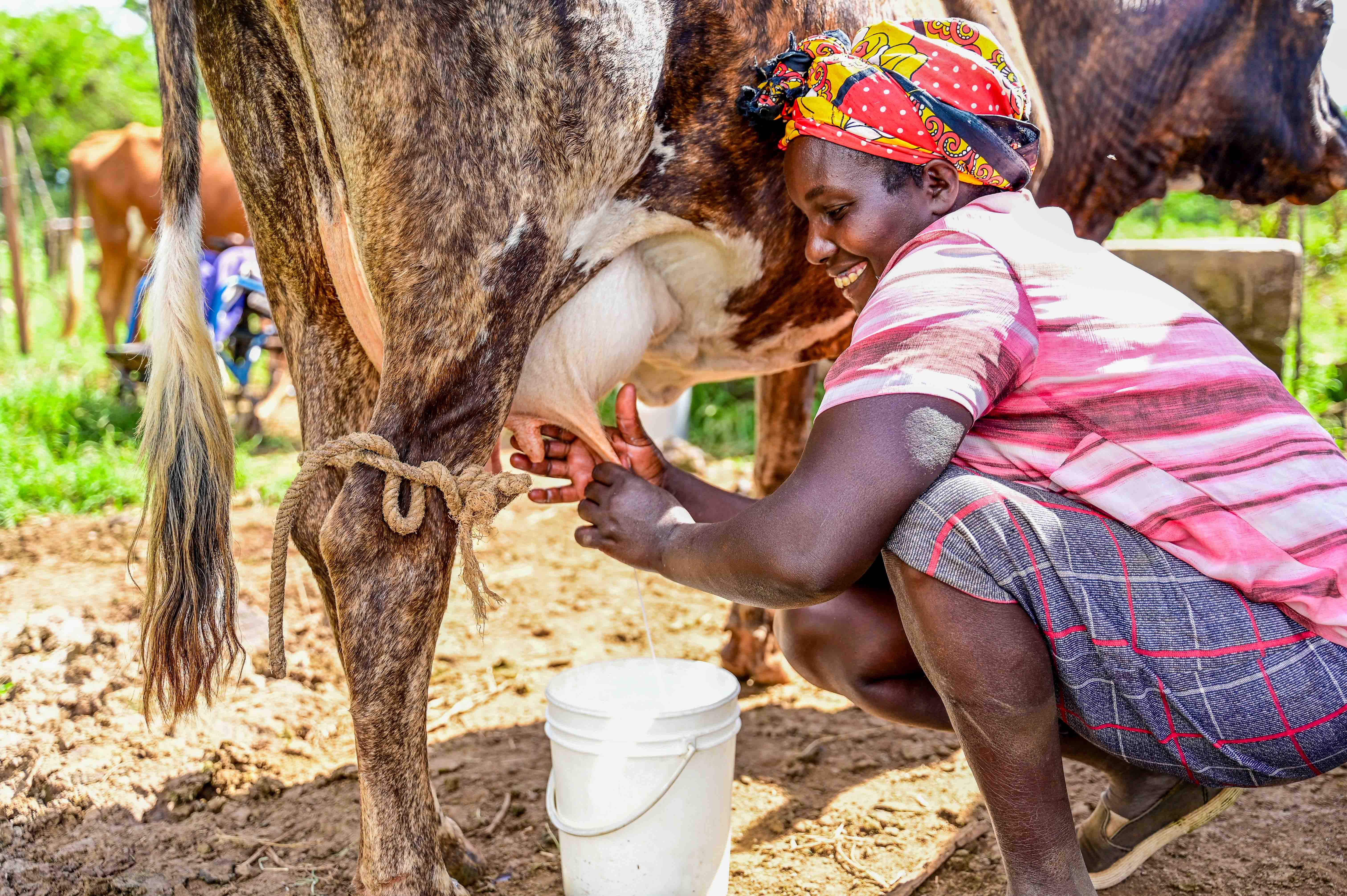
Three of her five cows are dairy cows, which she milks twice a day to yield eighteen litres. Sally makes at least 630 KES (4.83 USD) a day selling twelve litres of milk in the morning at 40 KES per litre and three litres in the evening at 50 KES per litre. The remaining 3 litres is left for consumption at home and at times she uses it to make traditional fermented milk known as Mursik in the Kalenjin community.
Due to the rising cost of living, a bale of pasture now costs 200KES (1.53 USD) instead of the previous 70KES (0.54 USD).
“Thankfully, since pasture and firewood are easily accessible in my homestead, I no longer have to spend the money on purchasing these items. Instead of buying, I now sell firewood to those who need it,” Sally says.
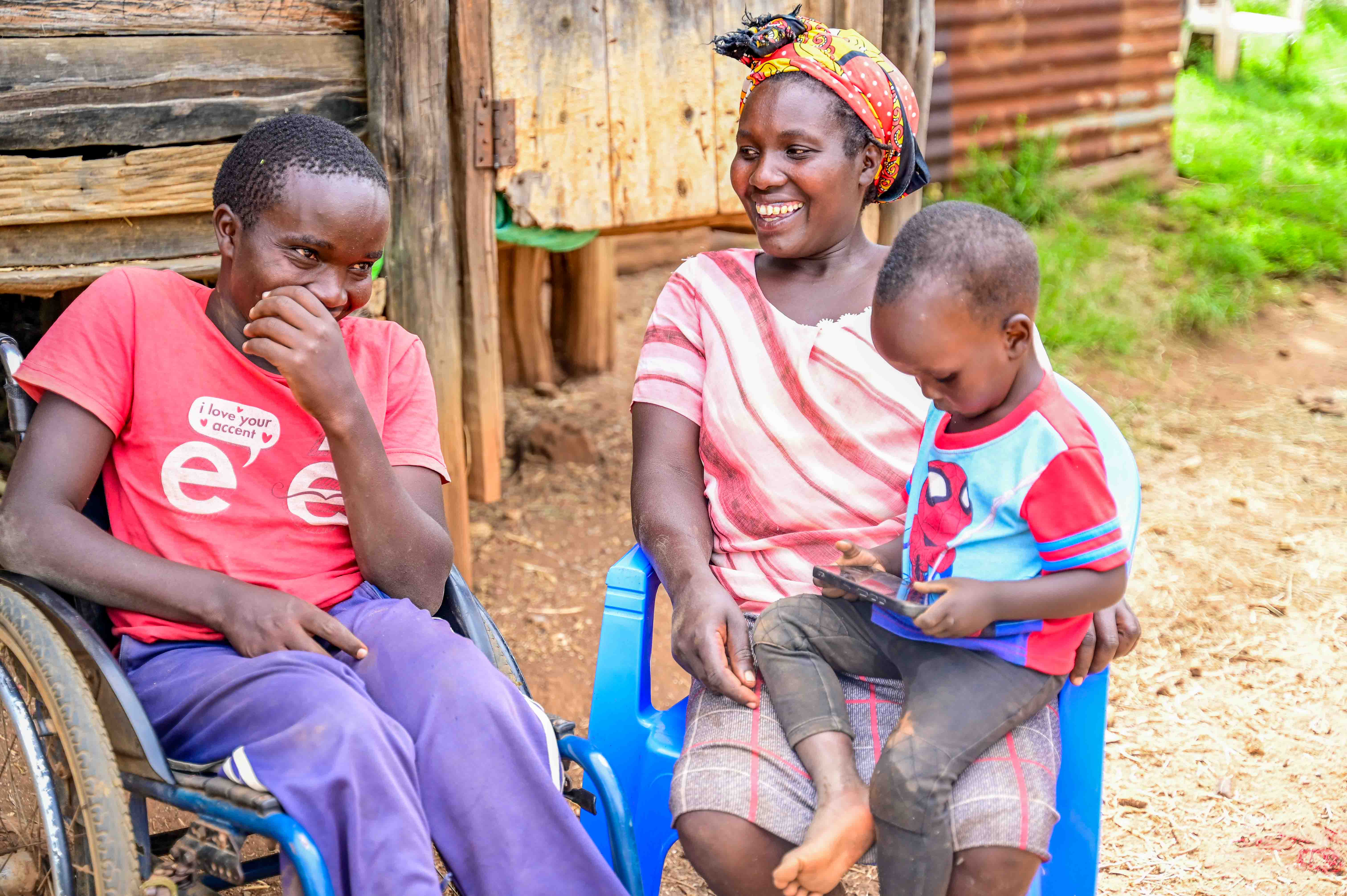
Sally used to wake up at 4 a.m. to go collect firewood from the forest seven kilometers away from her homestead. The safest option she had was to carry a weight substantial enough to runaway with, to avoid getting caught by authorities. The mother of four often suffered from backaches and wounds from lugging the firewood, which would be used up in three days before she could make another trip or purchase. Sally never had enough time to spend with her children since she was always too tired when she got home. She frequently asked a neighbor to help her on these days, offering to watch her kids and prepare breakfast while she was gone.
“After the long journey, I didn’t want anyone to talk to me. I am glad I can now spend more time with my children because we have everything here,” Sally says.
Sally has 100 hens. She charges 650 KES (4.9 USD) for a cock, 20 KES (0.15 USD) for eggs that are ready to hatch, and 15 KES (0.12 USD) for eggs sold to stores. She sells three-day-old chicks for 90KES (0.69 USD) and 300KES (2.30 USD) for older ones. She utilized the money she had saved over time to purchase an incubator, that she now uses to hatch or brood her chicks unlike before where she used to pay for these services
She grows a variety of crops such as potatoes, maize, sweet potatoes, onions, millet sorghum, black nightshade, kales and spinach. These crops are not only for household consumption but also a source of revenue for Sally. She makes at least 3,000KES (23.01 USD) a month from selling vegetables alone. Furthermore, Sally has so far sold seven litres of honey for 7,000 KES (53.69 USD) harvested from the five beehives she received from World Vision in April 2023. With increased access to finances and diversified sources of nutrition, Sally is assured of providing ENOUGH nutritious food for her family.
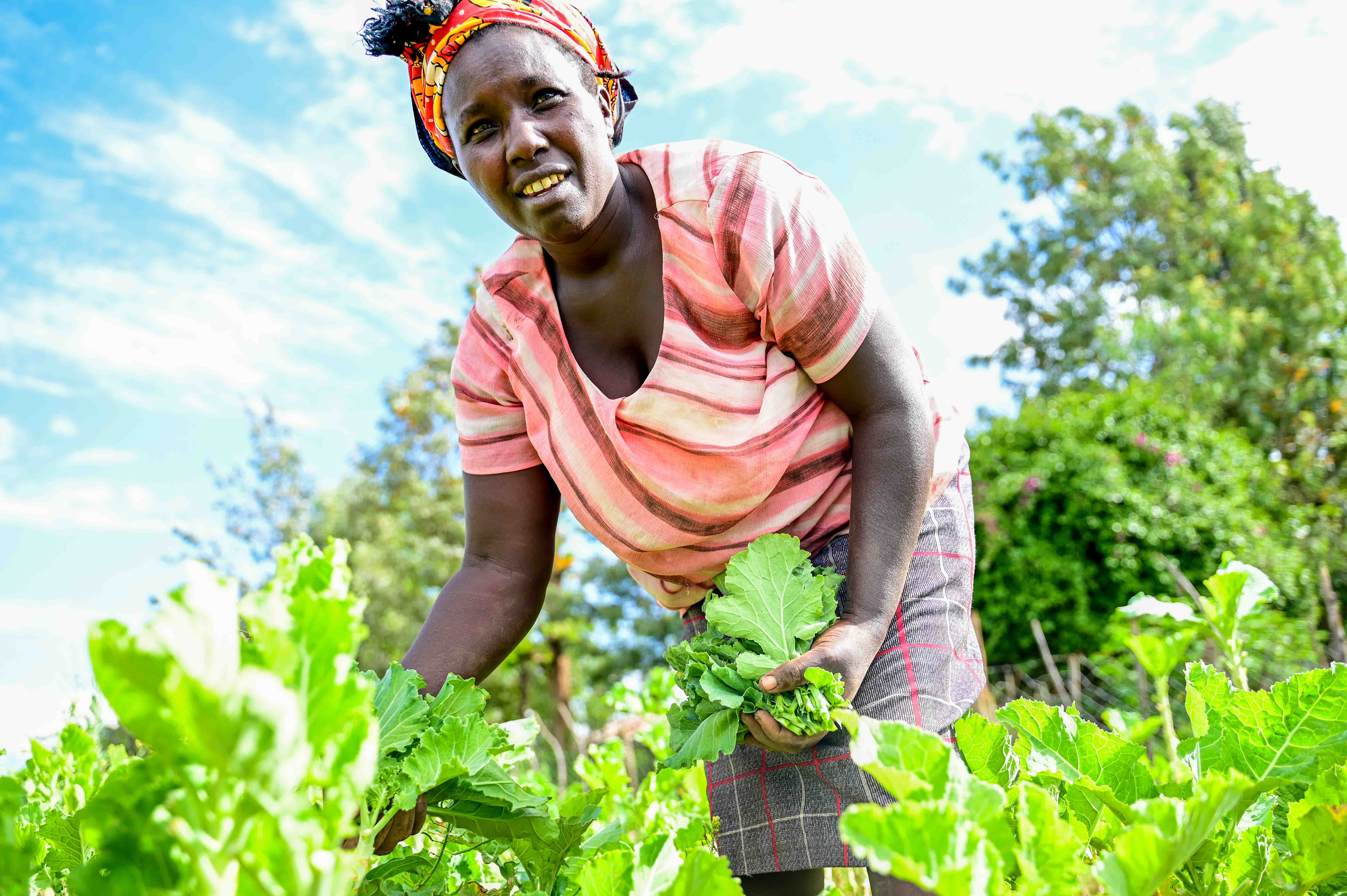
After being trained about World Vision's Savings for Transformation (S4T) model, Sally and other community members formed a savings group that enables them to save money in small amounts, take loans, get emergency funds and make profits after a year of saving. Sally received 12,000 KES (93.02 USD) from the group’s first share-out which she used to buy two sheep. During the one year, Sally was also able to take and repay two loans worth 8,000 KES (62.02 USD) and 10,000 KES (77.52 USD) that she used to buy barbed wire and pay school fees respectively. To empower women in her community, she has also formed another S4T group consisting of 25 women.
Sally likens the period before learning about FMNR to living in darkness, stating, “I am grateful to World Vision for training us on FMNR, financial literacy, drought tolerant crops, soil and water conservation and taking us on exchange visits that have been eye-opening. I was not doing any of these things before.”
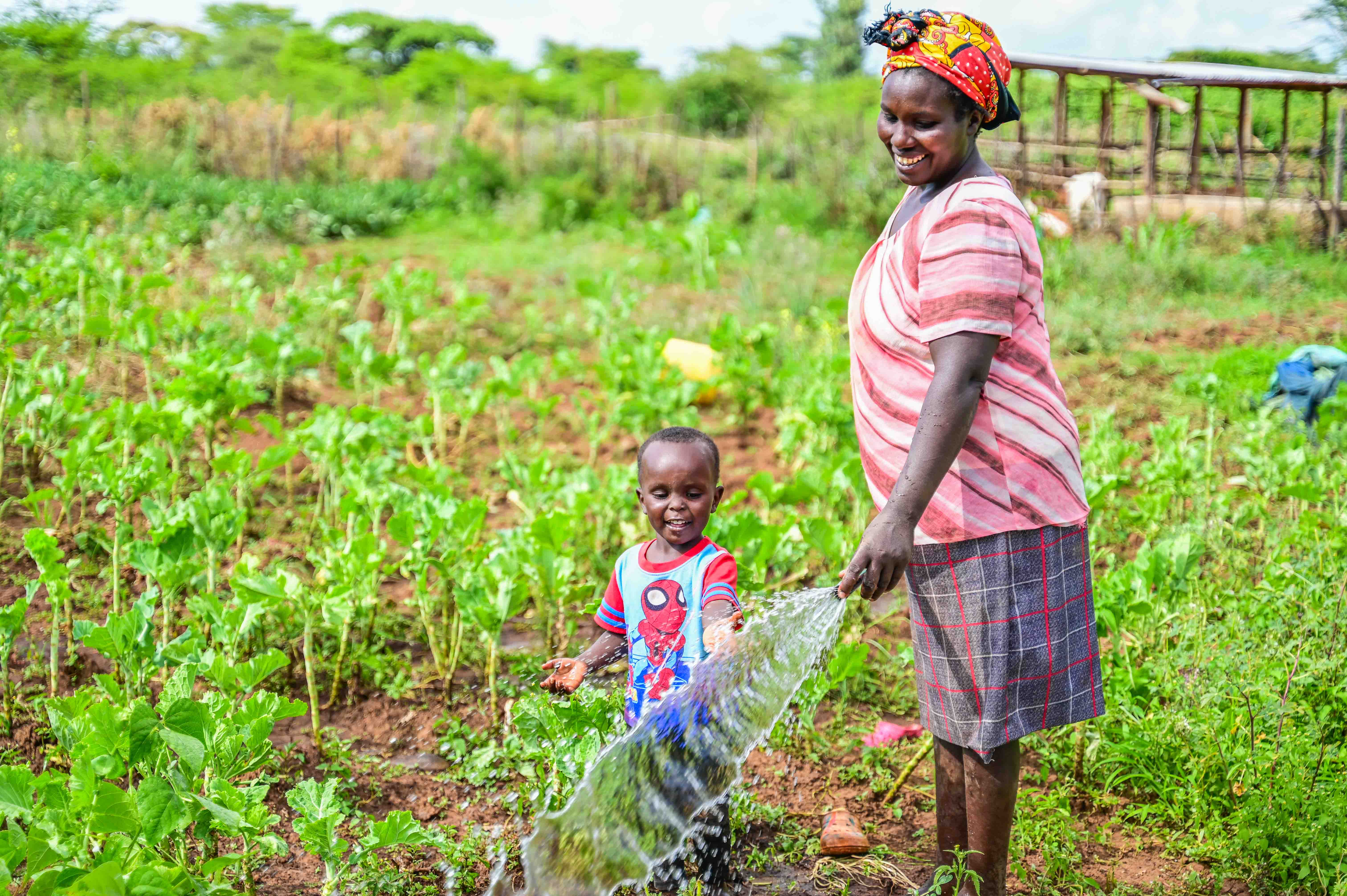
Sally was under-utilizing her farm and had never considered having Income Generating Activities (IGAs) from her farm produce until after attending training. She also purchased a 5,000-litre water tank that she now uses to collect rain water for household consumption.
Sally explains, “I used to store rain water in small containers and once the water was depleted, I could pay someone 500 KES (3.84 USD) to fill five 20-litre jerrycans with water from the river. This could last only a week.”
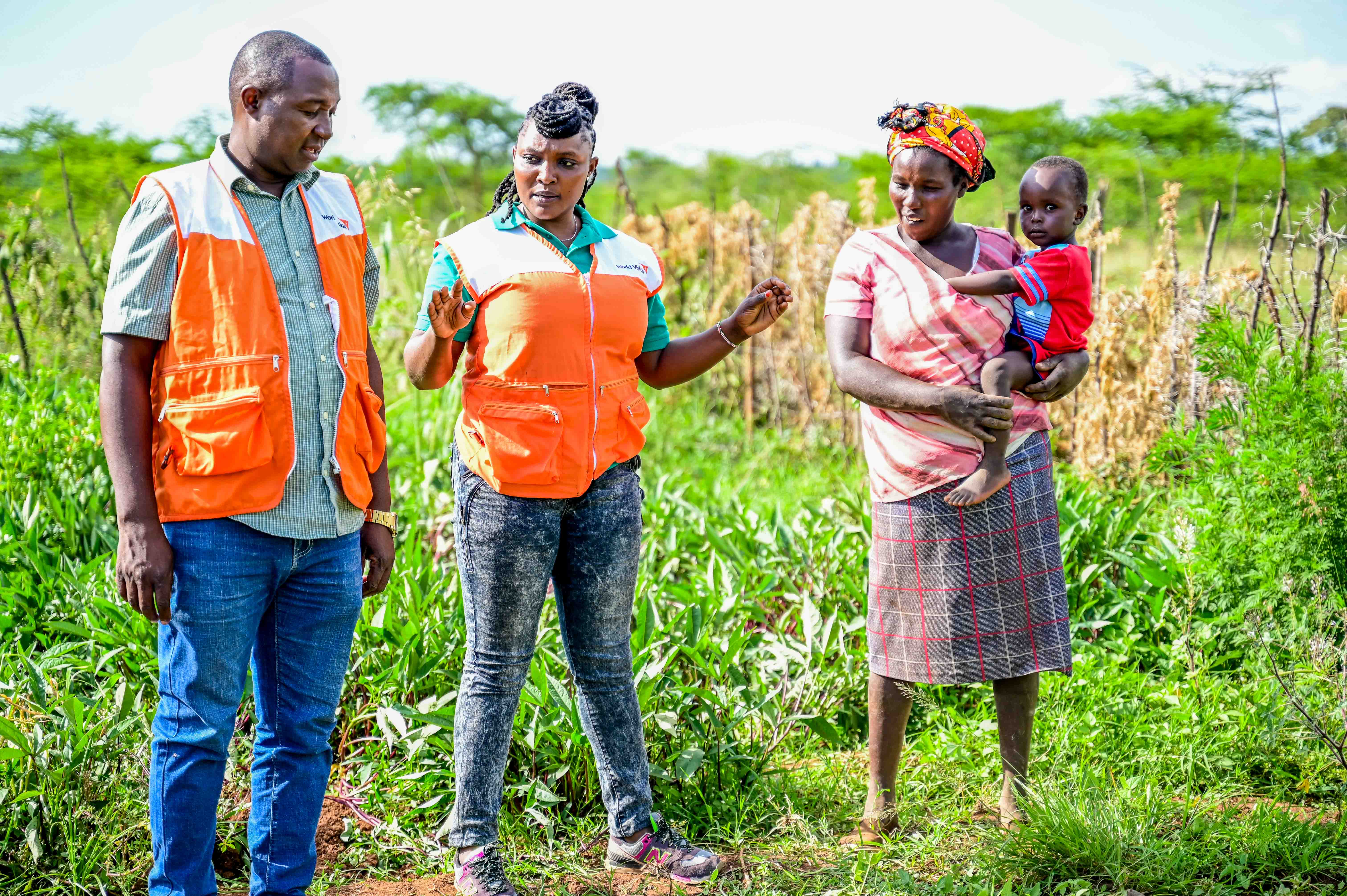
“I have witnessed great transformation in Sally’s life, primarily by her using the resources at her disposal that are at times overlooked by many. We not only train communities on restoring degraded landscapes, but also on identifying unutilized resources and diversifying their sources of income, which is essential for fostering livelihood resilience and sustainability,” explains Mary Wambui, Project Officer and Environmental Specialist at CRIFSUP, World Vision Kenya.
By Hellen Owuor, Communications Specialist (CRIFSUP), World Vision Kenya